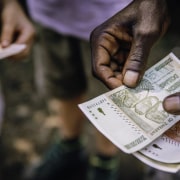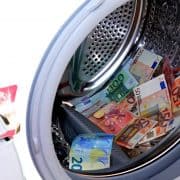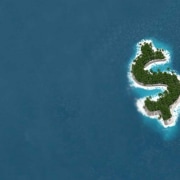|
Getting your Trinity Audio player ready...
|
With Hanna Ziady
First published on Moneyweb
Image by Mark Lewis
Corruption Watch’s executive director David Lewis spoke to financial journalist Hanna Ziady of Moneyweb on Monday, regarding the implications of the leaked Panama Papers, a story that had broken over the weekend. Read the transcript below:
Hanna Ziady (HZ): It has been described as the biggest leak in history. Yesterday the International Consortium of Investigative Journalists published the Panama Papers, an unprecedented leak of 11.5-million files from the database of the world’s fourth-biggest offshore law firm, Mossack Fonseca. The Panama leaks show how more than 200 000 offshore companies have aided financial secrecy and the hiding of assets among politicians, their family members and associates as well as business leaders and celebrities, including the prime minister of Iceland, the president of China, soccer player Lionel Messi and Russia’s Vladimir Putin.
In South Africa, we heard in Tumi’s bulletin, President Jacob Zuma’s nephew Khulubuse Zuma is among those implicated as are two people central to the fraudulent Fidentia scheme, Graham Maddock and Steven Goodwin.
We’re joined now by David Lewis, executive director of Corruption Watch here in South Africa. Dave, thanks for your time today. What does this leak mean for combating global financial crime?
David Lewis (DL): Well hopefully it means a lot of good things because this is a big revelation and law enforcement authorities, though they will be hard pressed to do so given the scale of the leaks, will follow up I guess … looking at critically exposed persons who have been hiding large amounts of assets that vastly exceed the salaries that they earn. So it will aid law enforcement and exposure of people who use these structures to hide illicitly sourced gains. It’s a big deal.
HZ: And a number of countries have come out to say that they are going to investigate the allegations, including South African authorities, Australia, France, the UK and New Zealand.
Corruption Watch, David, is part of Transparency International, which is pushing to make public beneficial ownership registers the global standard. Tell us what these are and what that would achieve.
DL: Well, South Africa is a member of the G20. And last year or the year before in Australia a pressure group was led by Transparency International, of which we are part – the G20 was pressurised to mandate its members, of which South Africa is one, to develop registers of beneficial ownership.
And what this means is when a company registers, they should disclose not only who their owners are in nominal terms. These companies are owned by nominee shareholders or by other companies. They are to disclose who their actual flesh-and-blood beneficial owners are. And this will help. South Africa committed to that with the rest of the G20 and we’ve been quite active in lobbying the development agencies in South Africa to do this as well.
In fact, at the end of last year there was a bill being piloted through Parliament which did precisely that– the Financial Intelligence Centre Bill. And although there is still an argument both here and elsewhere as to how public that register should be, we want it to be public, accessible to journalists like yourself and civil society organisations like ourselves.
But, whatever, it is going to be required if the South African government has its way – a public register or register of beneficial owners – and we will demand that it be a public register. And this will aid and abet enormously law enforcement measures aimed at cracking illicit flows of funds, because it will tell you if someone who is politically exposed is moving funds from one country to another. It will tell you if a well-known criminal is moving funds from one jurisdiction to another. It will tell you if somebody involved in terrorist activity is moving funds from one jurisdiction to another. So it will enormously help.
HZ: So they won’t be able to hide behind, as you say, these nominees that are effectively fake owners of the companies.
David, the International Consortium of Investigative Journalists shows that these records show how a global industry of law firms, big banks, etc., sell financial secrecy to these individuals, which include, as you say, terrorists but also political leaders, country leaders. There is obviously a difference between what is illegal and what is unethical. In your opinion, are companies and individuals within their rights to find the most favourable tax regimes?
DL: That’s a complicated question. Yes, I think there is sometimes a thin line between avoidance and evasion. But they are entitled to find a favourable tax regime. Often something that is acceptable in law is not acceptable in the court of public opinion, so they have to be careful about that. But they are. And there is no presumption that setting up an overseas account, even in the secrecy jurisdiction, is illegal.
But the fact is that it is often the case that people who want to hide illegal proceeds use these jurisdictions, these mechanisms to do so. And so I’m afraid there is always going to be presumption if the movement of funds is kind of unusual, and that’s why banks are, for example, required to report on suspicious transactions. Then they will be followed and they will be looked at because, as I say, even if not everybody who holds an account in the British Virgin Islands is guilty of a crime, then people who are guilty of a crime, hiding their proceeds in the British Virgin Islands, are being looked into and should be looked into.
HZ: Thanks to David Lewis. He was talking to us about that story that broke yesterday from the International Consortium of Investigative journalists. Lots of information online about this called the Panama Papers.
Listen to a sound clip of the interview (sourced from Moneyweb):







